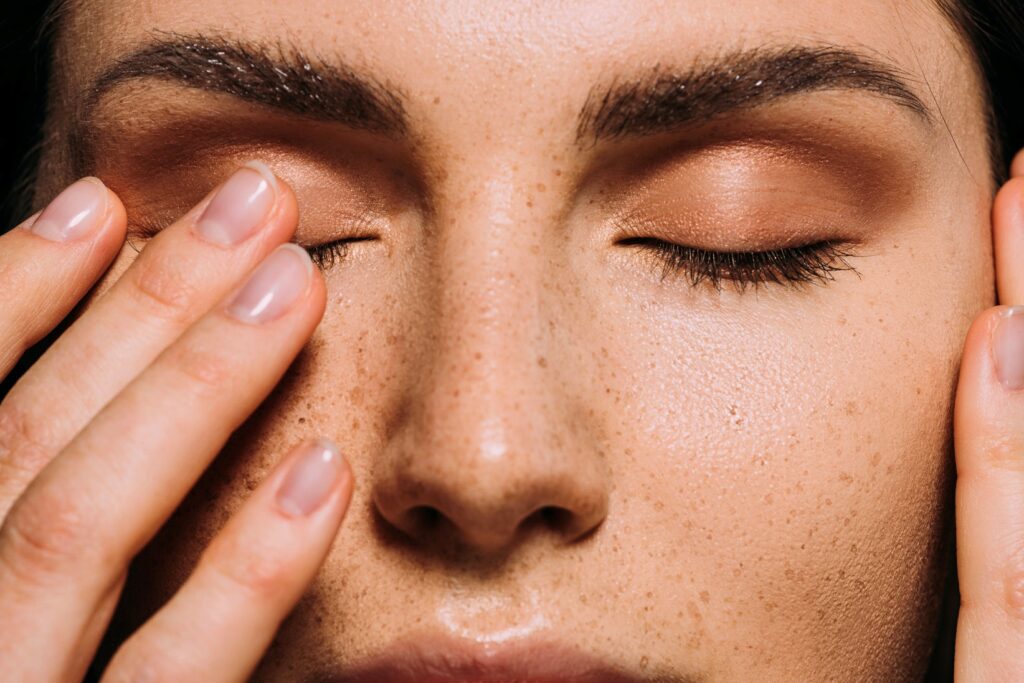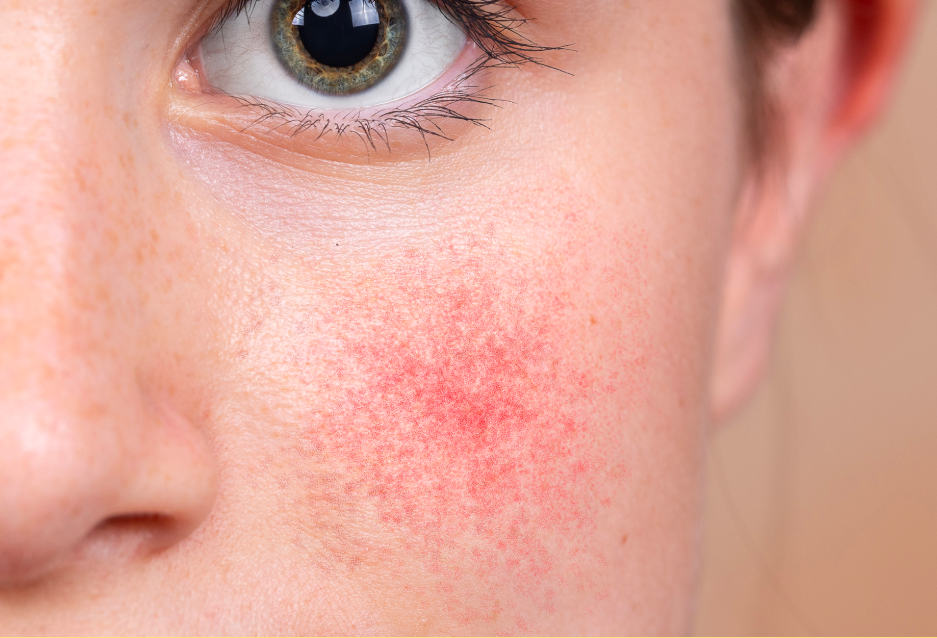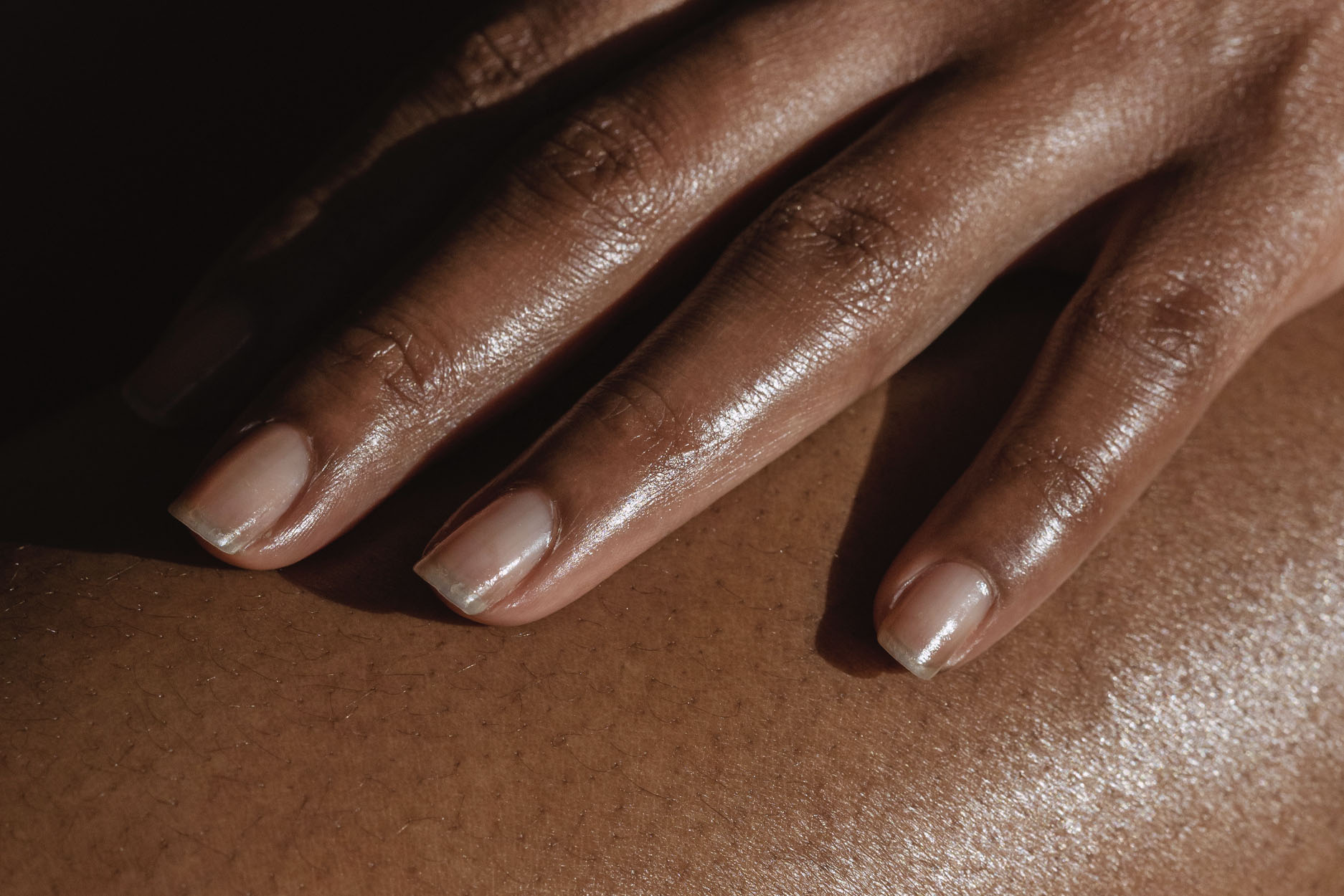Ask A Dermatologist: Sun Protection And Skin Cancer

Link to share article here:
Get To Know Your Skin Type: Dry, Oily, Combination and More
You and your skin are unique. That said, broadly categorising skin into ‘skin types’ is helpful for dermatologists because it helps identify some of the underlying causes of skin issues and better predict how skin will behave and react to different treatments.
Our Consultant Dermatologist, Dr Ben Esdaile explains, “Ultimately knowing your skin type means we can give you a more personalised treatment which will have the best chance of working with your skin and reaching your skincare goals, whilst minimising the risk of any side-effects.”
Of course, knowing your skin type will also help you make the best-informed decisions when it comes to buying skincare and makeup products over the counter too. If you know your skin type is oily, for example, you’d want to avoid comedogenic ingredients that could clog your pores and cause breakouts. If you know your skin type is dry, you can layer richer moisturisers over a hydrating serum containing hyaluronic acid for a healthy hydration boost.
How to work out your skin type?
While you may know that your skin has certain type-specific tendencies, we’ve created a simple guide to identify your skin type – and the genetic and lifestyle factors that can influence it – below.
Oily skin type
If you have an oily skin type you’ll notice that your face can get shiny as the day progresses. Your pores may be more visible and are more likely to suffer acne breakouts including blackheads, spots and blemishes.
When it comes to makeup, you’re likely no stranger to blotting sheets or mattifying powders. You might find that makeup and skincare products don’t always stay put for as long as you’d want them to.
Oily skin is the result of both genetic and hormonal factors which mean that your skin’s oil glands are predisposed to producing lots of natural oil (called sebum). The good news is that oily skin types tend to have younger-looking and more supple skin that will be less prone to fine lines and wrinkles.
Dry skin type
If you have a dry skin type, you may feel a tightness in your skin especially during the winter months, when your skin is exposed to central heating and the elements. You may also notice your skin flakes, peels or cracks and can become itchy and red.
People with dry skin types generally have almost invisible pores, and may suffer from premature fine lines and wrinkles, a rougher complexion and regular irritation to the skin.
Dry skin can be caused by lifestyle and environmental factors or be related to your genetics that trigger an underlying chronic condition (such as eczema).
Combination skin type
If you’re not quite sure if your skin is dry or oily because it often feels tight but also gets shiny, then the chances that you’ve got combination skin. Combination skin (dry in some areas and oily in others) is actually the most common skin type.
Usually, the dry areas are the cheeks and the oily areas tend to affect what we call the “T zone” (made up from the strip across your forehead and the line down the nose and chin which makes a T shape). Your pores are usually more visible and larger on these oily areas.
Combination skin can be pretty variable and indecisive, sometimes you’ll be dealing with acne breakouts, or dry skin patches or both. Many people mistake their skin type for oily when it’s actually combination so have a good look at your skin and unless it is oily all over, you’re more likely to have combination skin.
Balanced skin type
If you’re lucky enough to have a balanced skin type then you won’t often find that it’s too dry, too oily, or blemish-prone.
You’ll find that you can tolerate most skincare creams and won’t suffer often from sensitivity (meaning few issues with irritation or redness from skincare products). Your pores will be barely visible.
Sensitive skin type
Any of the above skin types can become sensitive at times.
The signs of sensitive skin vary, but it can include irritation to certain skincare products, makeup or fragrances, becoming red, itchy, bumpy or inflamed.
Sensitive skin is also susceptible to irritation in response to the weather such as falling temperatures and exposure to excessive sunlight.
Having a sensitive skin type can be related to underlying skin conditions such as rosacea, eczema or allergies which cause the skin to become easily inflamed and irritated.
Can my skin type change over time?
We asked Consultant Dermatologist, Dr Ben Esdaile more about how our skin type can change and the factors that affect this.
Skin + Me: Can my skin type change over time?
Dr Ben Esdaile: Yes, a person’s skin changes over time from a combination of genetics and environment. We also know that in women, oestrogen plays a key role in the skin and significant changes occur after menopause. After menopause (in oestrogen-deficient skin) there’s a decrease in oil production, a loss of the scaffolding in the deeper layers of the skin (collagen) and a reduction in elasticity of the skin (reduced elastin). Studies have shown a 30 per cent reduction in collagen in the skin in the first five years of menopause. Some people may see a complete transition from oily to a dry skin type.
Skin + Me: What are the factors that most commonly influence a person’s skin type to change?
Dr Ben Esdaile: There are multiple factors that can change a person’s skin type and these can generally be split into internal and external. Internal factors include the ageing process and the impact of hormones on the skin. Hormones play a key role in teenage acne, female adult acne and in skin changes after menopause.
The most important external factor is the environment with a person’s skin type changing with the weather. The skin tends to acclimatise to the external environment. When the air is very dry (low humidity) in cold weather or with central heating, the skin tends to lose water and can become dry. Exposure to the sun’s ultraviolet light results in damage to the skin and structural proteins (collagen and elastin). This can also result in changes to your skin type.
Skin + Me: Are there any universal ingredients or products that work for all skin types?
Dr Ben Esdaile: Hydrating moisturisers and gentle cleansers benefit all skin types as part of a supportive, simplified routine.
Sunscreen (SPF 30 or above) is an essential product that everyone should wear daily, whatever your skin type, to protect from sun damage, premature signs of ageing and support good skin health. Extra sensitive skins may find mineral sunscreens are tolerated better on their skin.
Medical facts checked by Consultant Dermatologist, Dr Ben Esdaile
New to Skin + Me? Get your first month of personalised skincare for £4.99 with promo code DOSE – complete our quick consultation here.
Looking for a routine refresh? Add the Dream Routine to your Skin + Me subscription.
In need of a restock? Head to The Skincare Shop for one-off purchases of your Routine Essentials.



